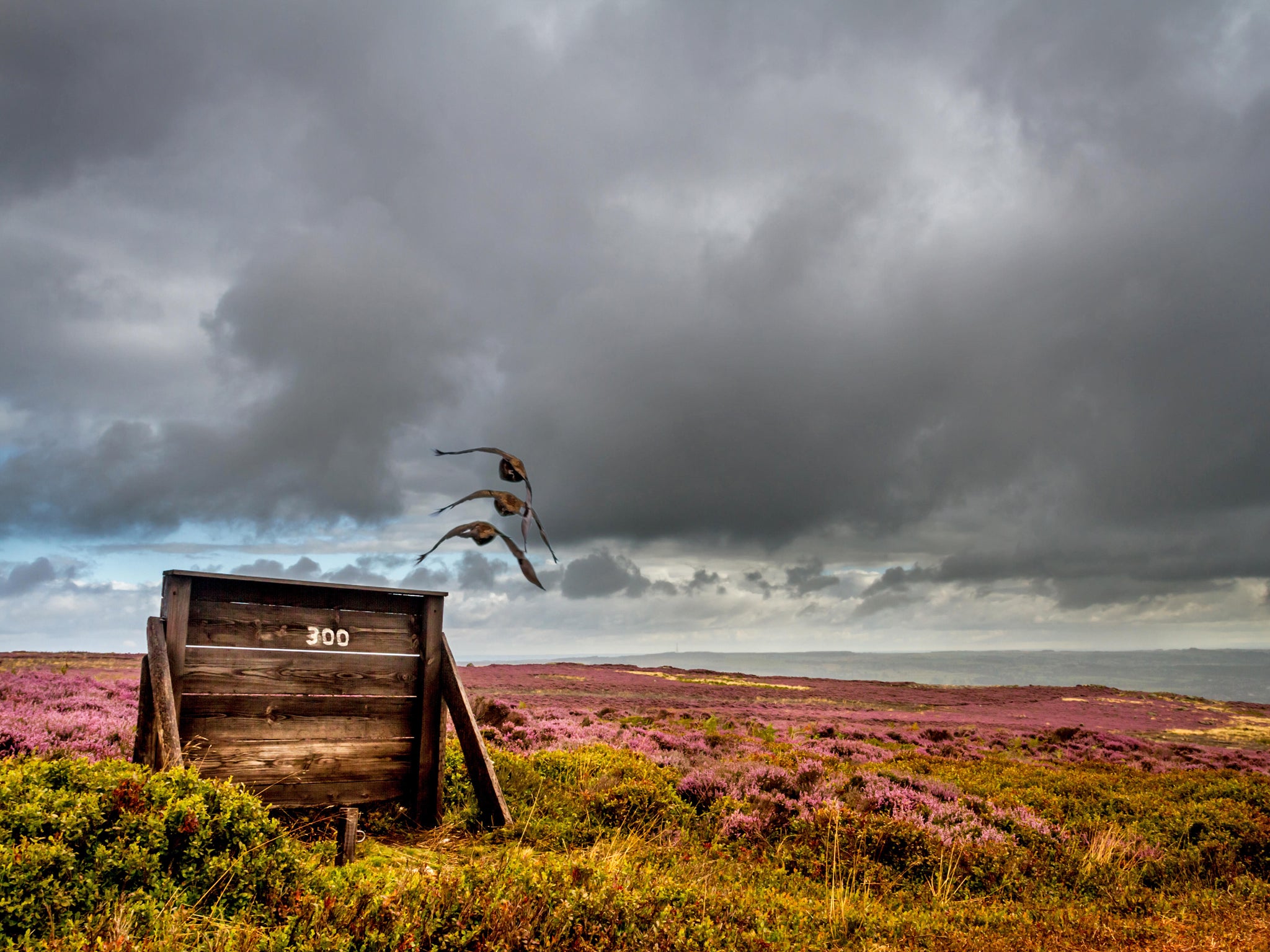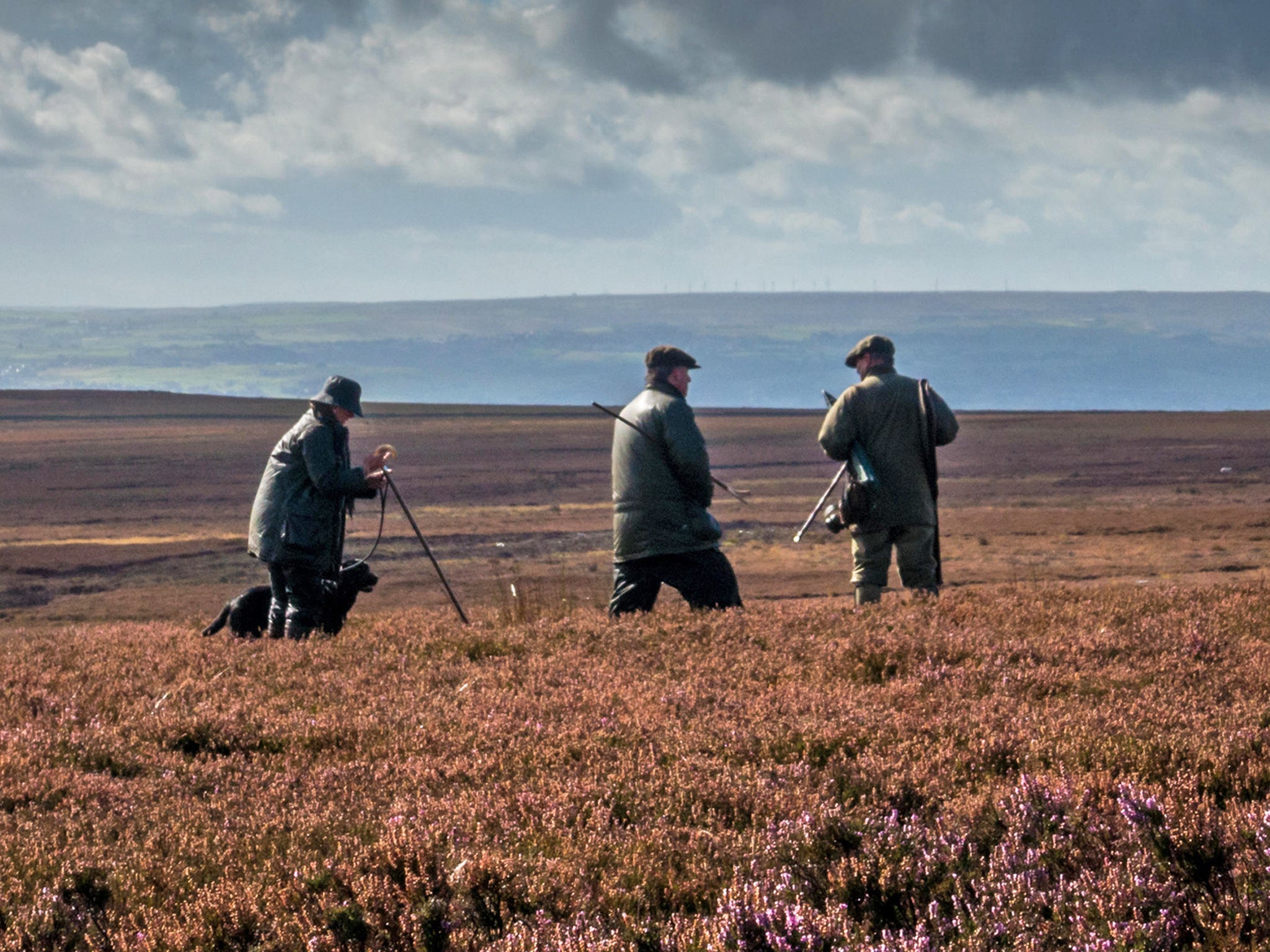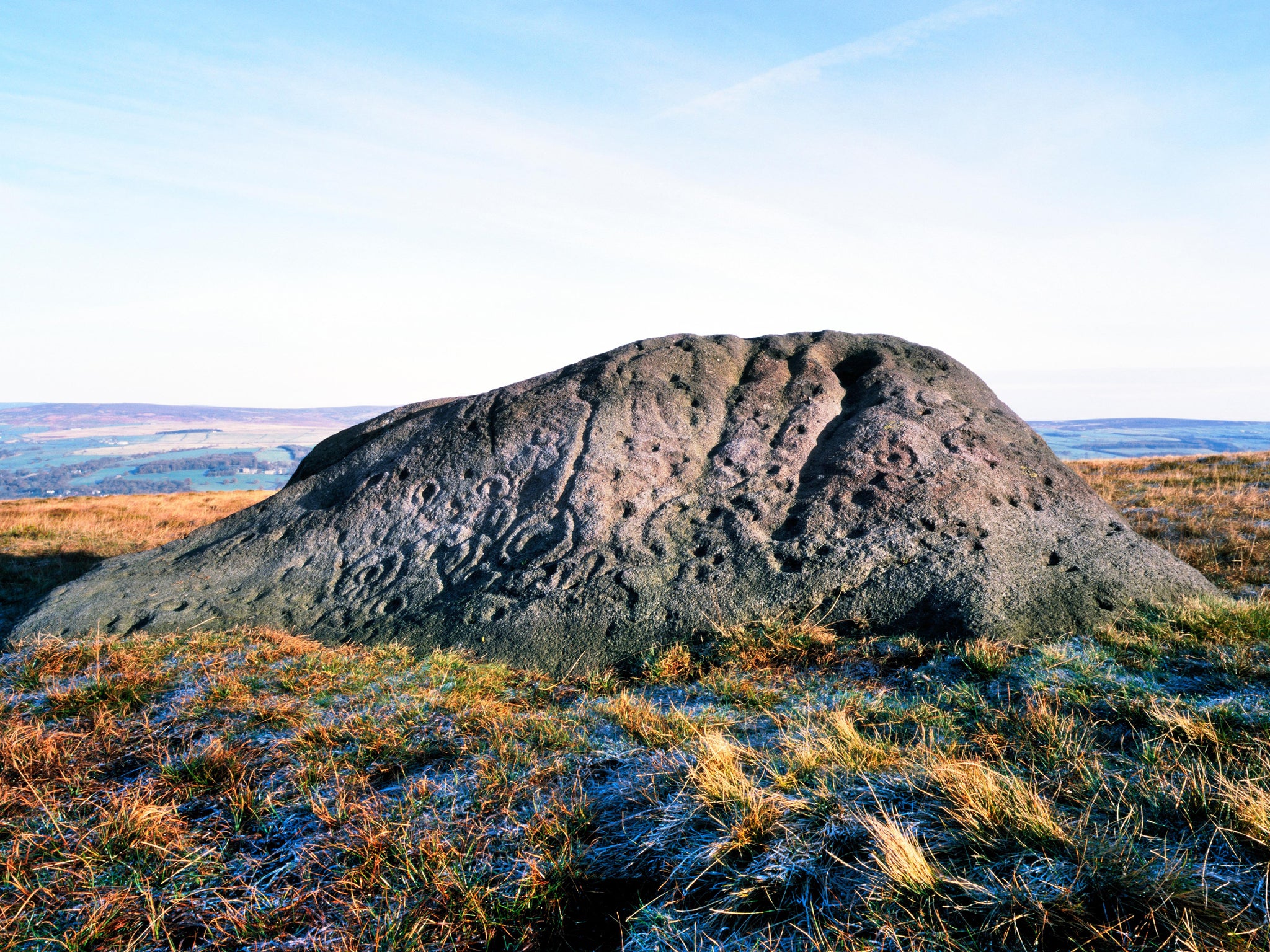How the end of the Glorious Twelfth on Ilkley Moor has changed more than shooting
After Bradford Council banned the famous grouse shooting on the moors, David Barnett asks is this a triumph for anti-cruelty advocates or a calamity for the conservation of the dramatic landscape and those employed by the seasonal event?

This year, the Glorious Twelfth will be notable on Ilkley Moor for one important thing… there will be no sound of gunfire.
After a long-fought battle between opposing factions, grouse shooting – which would have begun, as is tradition, on 12 August and run until 10 December – has been banned on the famous beauty spot in West Yorkshire.
That it was allowed at all was the cause of the discontent. Ilkley Moor is owned by Bradford Council, and up until the end of the 2017 season was the last local authority-owned piece of land in the country where grouse shooting was allowed.
The close of the season in December marked the end of the 10-year licence that Bradford Council had granted on the site from 2008, and over the past year or more there has been long, earnest debate about whether it should be renewed.
Ultimately, it wasn’t. As would be expected, this has caused much delight among those who opposed the activity, not least the group The Friends of Ilkley Moor.
Owen Wells, the group’s chair, said when the decision was taken that “we know that 87 per cent of our membership opposed the granting of the shooting lease and we suspect that this represents the overwhelming view of people in Ilkley”.
Of course, one of the overriding arguments in opposition of shooting was with regard to the actual killing of the birds. The most vociferous voices were the Ban Bloodsports on Ilkley Moor group, and the League Against Cruel Sports. Chris Luffingham, director of Campaigns at the League Against Cruel Sports said when the decision was announced in January: “This is a landmark moment in the campaign to end shooting in the UK. We are pleased to see that Bradford Council accepts the unnecessary suffering and collateral damage to wildlife and the environment that is caused by commercial shooting, and has returned the land to the people, instead of a small selection of bloodthirsty individuals.”

But on a deeper level the battle has been fought over the actual management and future of Ilkley Moor, with supporters of shooting saying it is the shooting community which has maintained this huge tract of dramatic landscape, not just for the shooters but for all those who use it all year round.
According to the Yorkshire Dales Moorland Group, “managing moorland for grouse shooting is vitally important to remote rural communities in terms of economic, environmental and social benefits and is a lifeline for many local businesses in the Yorkshire Dales”.
The group points to hard facts of the benefit to the local economies around grouse shooting sites: 1,600 stays in local hotels, £192,000 to hotels, restaurants and pubs throughout the season, 50 people per shoot per day employed, with an estimated 800 workdays of additional employment from beaters, flankers and caterers, grouse supplied to local butchers and retailers.
It’s these figures, partly, which prompted the British Association for Shooting and Conservation to brand the council decision on Ilkley Moor as a “calamity” and, with equally emotive language, to lay the blame at the door of “three years of campaigning by anti-shooting extremists”.
Gareth Dockerty, regional officer for BASC North, said: “It is devastating for the fragile biodiversity of the moor that councillors have had their head turned by extremists who know so little of grouse moor management.
“The scientific evidence shows that the management of sensitive moorlands for grouse shooting has clear economic, social and environmental benefits.
“Heather moorland is rarer than rainforest and under good management for grouse shooting, other threatened birds thrive and biodiversity improves. Why would you want to destroy such a benefit to the environment?
“A decision to end grouse shooting on the moor will be a tragedy for conservation. Grouse moors support a vast range of wildlife and this is absolutely down to the efforts of gamekeepers and farmers.”
It is the future of Ilkley Moor which is now the focus in the aftermath of the decision. The moor covers some 1,670 acres, and since 1994 has been designated a site of special scientific interest by Natural England. The moor is also one of the most important sites in the country for prehistoric rock art, with a stone circle and rocks carved with cups, rings and grooves dating back to the late Neolithic or Bronze Age periods. It is also home to a vast ecosystem of birds and animals, and attracts thousands of visitors each year.
According to Luke Steele, spokesman for the Ban Bloodsports on Ilkley Moor group, looking to the future is paramount. He says: “Our efforts will now turn to reversing the terrible legacy of grouse shooting on the moor in pursuit of a first-class asset for the region, which promotes wildlife biodiversity, education, leisure and the local economy.”
But, say the pro-shooting lobby, that’s what we were doing anyway, with boosts to the local economy into the bargain.
However, it’s not so cut and dried, says Owen Wells from The Friends of Ilkley Moore. “We know that the Moor was well managed by the Bradford Countryside Service before the lease was granted in 2008. The money the shoot spends has been to benefit the shoot, not for the benefit of the wider public. In the 10 years that the shoot has had the lease, the Friends of Ilkley Moor have raised money and provided volunteer labour to the value of more than a third of a million pounds and this dwarfs the amount of money either contributed directly to the council by the shoot or the amount spent by the shoot on management of the moor in ways that directly benefit the public.
“Now that the matter of the shooting lease has been settled, the important issue is how Ilkley Moor is to be managed in the future with both wildlife and public access as the chief priorities. We look forward to working with Bradford’s Countryside Service to ensure that Ilkley Moor retains its status as one of the finest public assets in the ownership of Bradford Council.”

And that’s a challenge Bradford Council is confident it can meet, even in these times of straitened public spending. Councillor Alex Ross-Shaw, executive member for regeneration, planning and transport, at the authority, said: “Our new Ilkley Moor Management Plan sets out our approach to management of the moor regardless of whether or not grouse shooting takes place on the moor.”
It’s the financing of the future management of Ilkley Moor which the pro-shooting lobby is now seizing on. Gareth Dockerty of the BASC said, “It is alarming to think that in times of continued austerity, the management of this fragile moor could now have to be paid for out of the public purse. History shows the danger of not effectively managing such areas. If the heather-clad uplands are not effectively managed, the heather becomes long and rank, creating a sterile wilderness that in turn becomes a dangerous wildfire risk. Sadly, this happened on Ilkley Moor before it was managed for shooting.”
And Adrian Blackmore, director of shooting at the Countryside Alliance, added, “The taxpayers of Bradford need to ask their councillors why they will now be paying tens of thousands of pounds to undertake work currently paid for by private investment.”
So while the war might be lost, the battle continues, and it’s one of hearts and minds – and pockets. Whether shooters hope that Bradford Council will struggle to manage the moorland and ask them back, or if they just want to be able to say “We told you so”, they are from various corners pushing the idea that it’s the taxpayer who will ultimately suffer.
They also point darkly to the fact that Bradford Council is Labour-controlled, and that the campaign to end shooting garnered support from celebrities such as Bill Oddie, TV naturalist Chris Packham and Emmerdale actor Nick Miles.
Adrian Blackmore, from the Countryside Alliance, said that taxpayers “need to ask why the views of wealthy BBC presenters like Chris Packham and animal rights activists from across the country have been prioritised over local wildlife and local people”.
However, according to the council, it was local people who swung the decision away from the shooting lobby. A public consultation was held on the issue, and according to Bradford Council it had the largest number of submissions from the public ever received on any single topic, and the majority were in favour of scrapping grouse shooting.
Which means that Bradford has ended its tenure as the last local authority in the UK to allow grouse shooting to take place on public moorland. Other authorities such as the Peak District National Park Authority and Sheffield Council have previously prohibited the practice on their upland estates, having previously allowed it.
Come August, wildlife activists and local campaigners will be celebrating the fact that the grouse fly free on Ilkley Moor. But everyone will be keenly watching to see how Bradford Council can effectively manage and maintain this important site in the future to ensure that they haven’t – by turning away the countryside sports lobby and the money they claim they generate – shot themselves in the foot.
Join our commenting forum
Join thought-provoking conversations, follow other Independent readers and see their replies
Comments
Bookmark popover
Removed from bookmarks